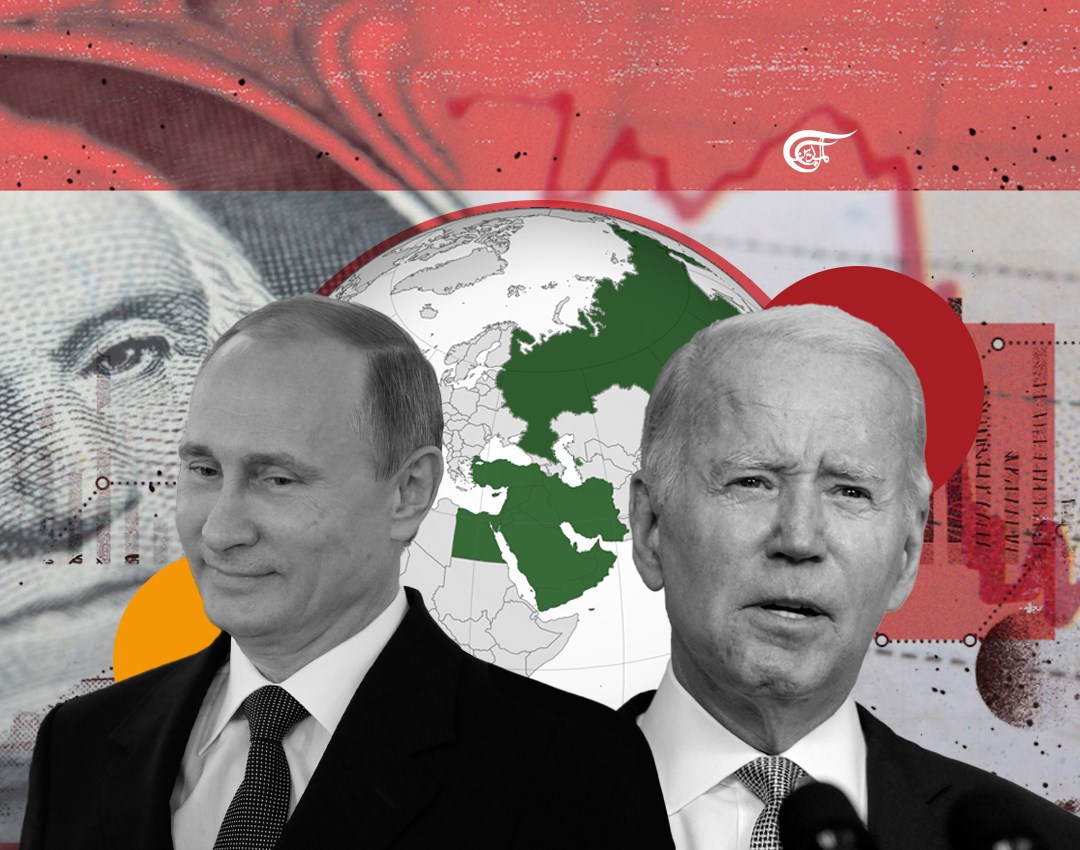EU’s ‘Ukraine Derangement’ blights the entire Middle East
Put simply, NATO, acting impetuously (i.e., escalating further in Ukraine) can become a pretext for securing Russia’s future as an Asian superstate, which ultimately will mark the end of the road for fiat currencies.
-

The politics of the entire region are being blighted -- just as occurred during the EU infighting between France and the UK at the outset of the 2006 war.
A storm has broken out within the EU: How to punish Iran, Elijah Magnier writes, after protests fail to overturn the Iranian government? One faction -Germany- welcomes a terrorist blacklisting of the IRGC, whereas High Representative, Josep Borrell, says that a court must approve the IRGC blacklist: "The decision has to be approved by a European Court of Justice before the EU can act: You can't say I consider you a terrorist because I don't like you."
The point here is that the disagreement over Iran is related to the West's failure to oust President Putin and inflict a humiliating reversal on Russia. Someone or something must be blamed. And further, blaming Iranian drones and threatening terrorist designation for the IRGC serves the wider agenda of delivering a clear US warning to Middle East states that they must distance themselves from Russia.
The politics of the entire region are being blighted -- just as occurred during the EU infighting between France and the UK at the outset of the 2006 war. It is ‘with us or against’ back again, but today further sharpened by the displacement on the map of thirteen states lining up to join with the BRICS, which is fast becoming ‘the majorities’ G20 -- a political and economic bloc standing as a counterpoint to the US-led global order.
The economic benefits of discounted energy, China’s investment capacities, and sound money are the ingredients for a new, Asia-wide industrial revolution, whilst the West faces its defining choice -- of relapse back into the bust/boom pattern (with ‘bust’ being the odds on prospect) -- or paradigmatic change, for which the political class is unprepared.
“We are in big, big trouble”, Viktor Orbán says of Europe. It needs to understand that Russia cannot afford to lose -- and will not lose. Time is on Russia's side. Russia is a huge country and can mobilize a vast army. Ukraine is already running out of troops. When that happens, then what?
“They [the Europeans] don’t know who they are”, Orbán said bluntly.
As Rod Dreher writes in The American Conservative,
“[Orbán] explained that if you asked them to define themselves in relation to the war, they would say, I am the leader of a country standing on the ‘right side of history’. That conviction, and being pressed hard by Washington, as well as “fear of the liberal media”, is what motivates their thinking -- not a consideration of what's in the best interest of their own countries.
“The Germans are suffering because they know what's in their national interest, but they're not able to say it”. Orbán meant that the German leadership knows it has no business being involved in a war with Russia, but is, for whatever reasons, unable to say ‘no’ to Washington”…
“If Russia's coming spring offensive proves successful, then the NATO countries are going to be faced with the question of do we send in soldiers to fight for Ukraine? This is front to mind among a growing number of Europeans, whose countries stand to be devastated if war spreads…The West is “in a war with Russia. That's the reality. Every day we are moving further in”, Orbán explains.
The light forces Russia used in the early stages of the SMO were thought initially in Moscow to be sufficient to cause Kiev to sue for peace, but then NATO started throwing new weapons and ‘mercenaries’ into the fray. The Russians promptly stepped back, pulled their expeditionary forces out, and re-focussed on destroying the AFU’s (Armed Forces of Ukraine) men and materiel. The AFU, unable to act strategically, switched to engagement in territorial battles along the Donbass front. Monumental destruction of AFU’s men and materiel resulted. (Stalin’s approach was to always keep pressure along an entire front in the expectation that a weakness could be found -- and exploited).
Having exhausted much of the old Soviet munitions inventory held by NATO states, Kiev’s sponsors doubled-down, sending “volunteers” and ever more advanced Western materiel. Yet there’s no new NATO strategy because there’s now no peer Ukrainian army per se. All the West can do is to continue trying to drag the Russians into the same quagmire they themselves blundered into months ago.
Just as the consequences of massive sanctions on Russian energy and the banning of Russian banks from SWIFT were not thought through in advance by Washington, so too, are the consequences flowing from the next phase of the wider ‘financial war’ -- the intent to implement a simple, gold-linked digital currency -for real-time ‘clearing’ between Asian Central Banks - superseding earlier notions of a commodity-linked trade currency, which are routinely dismissed in the West.
Iran and Russia however, have just connected their national financial messaging systems: 52 Iranian banks and 106 Russian banks are now linked through the Russian equivalent of SWIFT - the System for Transfer of Financial Messages (SPFS).
The initial western financial thrust to collapse the Russian economy backfired by driving up energy prices for the benefit of western rivals. However, it is Russia’s next step -- if implemented -- that threatens to drive up commodity prices, undermine western financial markets, and ultimately collapse their currencies. Put simply, NATO, acting impetuously (i.e., escalating further in Ukraine) can become a pretext for securing Russia’s future as an Asian superstate, which ultimately will mark the end of the road for fiat currencies.

 Alastair Crooke
Alastair Crooke
 4 Min Read
4 Min Read












